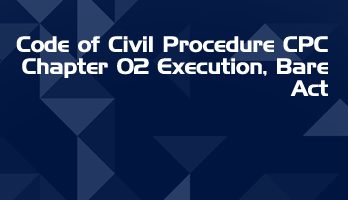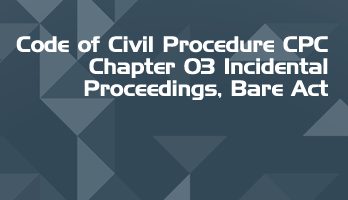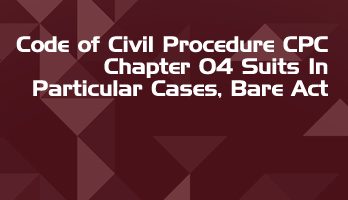A 'Bare act' is the actual legislation passed by the Parliament of India. Generally, an act sets out the high level legal and policy principles applicable to the subject matter of the law.
Most acts are accompanied by 'subsidiary legislation' such as rules, regulations, notifications and orders; which address the actual implementation detail of the act.
Free Full Course Available on LawMint's YouTube Channel
How to Land Your Dream LLB Internship in a Top Law Firm
- Part 1 - Introduction
- Part 2 - Internship Planning
- Part 3 - Internship Research
- Part 4 - Building Your Profile
- Part 5 - The Email
- Part 6 - The Resume
- Part 7 - The Cover Letter
- Part 8 - The Interview
- Part 9 - Self Development
Practical and comprehensive course, with real examples and step-by-step analysis of the complete internship application process. Check out LawMint's YouTube channel now!
Negotiable Instruments Act, 1881
Chapter XVI – Of International Law
Section 134 – Law governing liability of maker, acceptor or indorser of foreign instrument
In the absence of a contract to the contrary, the liability of the maker or drawer of a foreign promissory note, bill of exchange or cheque is regulated in all essential matters by the law of the place where he made the instrument, and the respective liabilities of the acceptor and indorser by the law of the place where the instrument is made payable.
Illustrations
A bill of exchange was drawn by A in California, where the rate of interest is 25 per cent., and accepted by B, payable in Washington, where the rate of interest is 6 per cent. The bill is endorsed in India, and is dishonoured. An action on the bill is brought against B in India. He is liable to pay interest at the rate of 6 per cent only; but if A is charged as drawer, A is liable to pay interest at the rate of 25 per cent.
Section 135 – Law of place of payment governs dishonour
Where a promissory note, bill of exchange or cheque is made payable in a different place from that in which it is made or indorsed, the law of the place where it is made payable determines what constitutes dishonour and what notice of dishonour is sufficient.
Illustrations
A bill of exchange drawn and indorsed in India, but accepted payable in France, is dishonoured. The indorsee causes it to be protested for such dishonour, and gives notice thereof in accordance with the law of France, though not in accordance with the rules herein contained in respect of bills which are not foreign. The notice is sufficient.
Section 136 – Instrument made, etc., out of India, but in accordance with the law of India.
If a negotiable instrument is made, drawn, accepted or indorsed outside India, but in accordance with the law of India, the circumstance that any agreement evidenced by such instrument is invalid according to the law of the country wherein it was entered into does not invalidate any subsequent acceptance or indorsement made thereon within India.
Section 137 – Presumption as to foreign law
The law of any foreign country regarding promissory notes, bills of exchange and cheques shall be presumed to be the same as that of India, unless and until the contrary is proved.
Important Central Acts in Regional Languages
Legislative department website also features regional language versions of several important Central Acts.
Free Full Course Available on LawMint's YouTube Channel
How to Land Your Dream LLB Internship in a Top Law Firm
- Part 1 - Introduction
- Part 2 - Internship Planning
- Part 3 - Internship Research
- Part 4 - Building Your Profile
- Part 5 - The Email
- Part 6 - The Resume
- Part 7 - The Cover Letter
- Part 8 - The Interview
- Part 9 - Self Development
Practical and comprehensive course, with real examples and step-by-step analysis of the complete internship application process. Check out LawMint's YouTube channel now!












